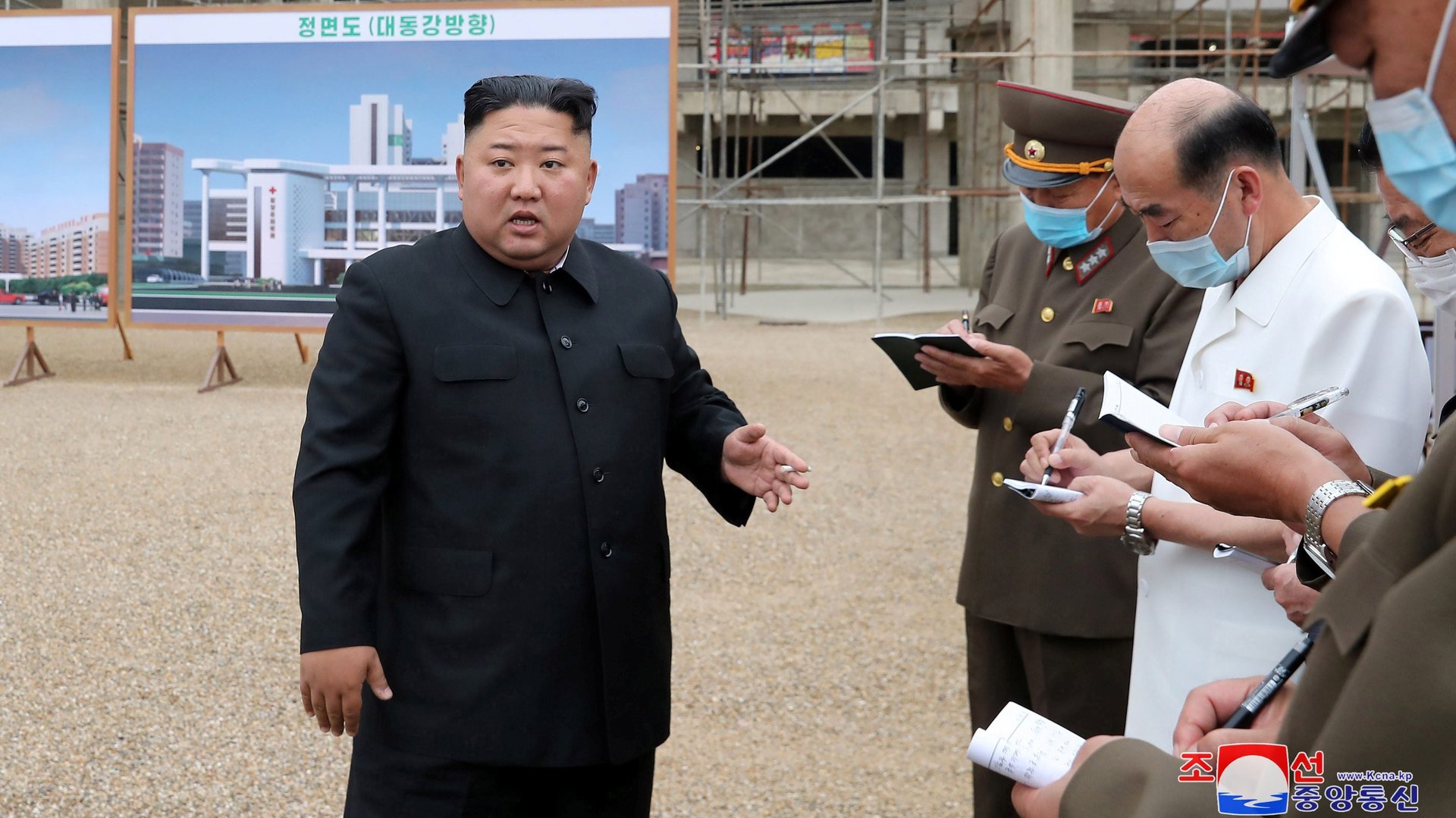North Korea claims to have no coronavirus cases but is working on a vaccine anyway
More than 30 coronavirus vaccines are being tested on humans worldwide, and North Korea just joined the race. On Saturday (Jul. 18), the country’s State Commission of Science and Technology announced government scientists had started on the first stage of human trials for a vaccine candidate, according to the Korea Herald.


More than 30 coronavirus vaccines are being tested on humans worldwide, and North Korea just joined the race. On Saturday (Jul. 18), the country’s State Commission of Science and Technology announced government scientists had started on the first stage of human trials for a vaccine candidate, according to the Korea Herald.
Just one hiccup: To test the shot’s effectiveness, scientists would have to conduct trials abroad, the statement said, “since there is no case of Covid-19 in DPR Korea.”
Why would North Korea—a country with a struggling healthcare system that relies on the World Health Organization (WHO) for vaccines—invest in a vaccine that isn’t affecting its citizens? The short answer: It probably wouldn’t.
Several public health experts told the New York Times they were skeptical of the country’s claim to have zero cases of coronavirus back in March. Kee Park, a lecturer at Harvard Medical School who has worked in North Korea, suggested the country may be able to claim zero cases because it doesn’t have robust enough testing capacity to detect the disease. “So they can say, ‘We have not confirmed it,’” he told the Times.
North Korea closed its borders on Jan. 30, making it difficult to determine what’s happening inside the authoritarian state. Despite the governments claims to the contrary, there are reports of deaths seemingly caused by coronavirus, including more than 200 North Korean soldiers who died of coronavirus in March, according to South Korean publication Daily NK.
The country’s early decisions to close borders and quarantine tens of thousands of people may have prevented the outbreak from being as severe as in neighboring countries, such as South Korea and China. But even if North Korea has some cases, it could be difficult to study the vaccine’s efficacy within its borders unless there’s considerable outbreak; to learn whether a vaccine actually works, it needs to be tested on hundreds and thousands of people exposed to coronavirus.
For now, the world simply doesn’t know how badly coronavirus has affected North Korea or whether a vaccine trial could be completed within its borders.
While North Korea’s information blackout and claims of zero cases are extreme, there are many instances worldwide where government claims belie the true impact of coronavirus. Mexico is failing to report hundreds, if not thousands of cases of the virus in Mexico City, according to the New York Times. In June, Brazil’s government briefly stopped sharing data on coronavirus until it was ordered to resume publishing by its Supreme Court. And inadequate testing means the true coronavirus count is lower than the official total in the United States.
The real figures, though, provide hugely valuable information. Data on coronavirus cases help pinpoint outbreaks, dangerous gathering areas, and the spread of the virus. Epidemiologists in California blamed state health authorities’ failure to share local data on the resurgence of the virus, according to Science. Publishing may embarrass governments that wish to hide the terrible impact of coronavirus, but it also helps to track and limit the disease. And, as reports from within North Korea suggest, coronavirus is capable of traveling anywhere.